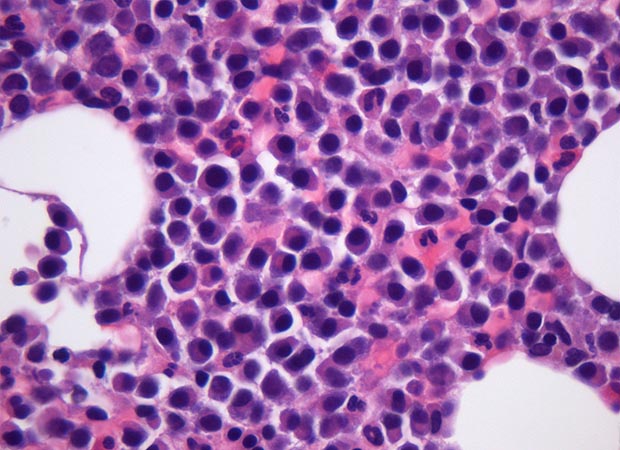
Multiple myeloma is treatable, not curable. Is that set to change?
Multiple myeloma is cancer of the bone marrow; the “multiple” part refers to cancer cells that appear in various areas of the body as cancerous plasma cells overtake healthy blood cells.
For years, patients have been told that multiple myeloma is treatable but not curable. Yet data continues to accumulate about a subset of patients that remains disease-free for so many years that experts are wondering if a cure may in fact be possible.
“Part of the problem is how one even defines ‘cure,’” said Dr. Rahul Banerjee, associate professor (Hematology and Oncology). “We sometimes talk about a ‘functional cure’ or ‘operative cure’ whereby most patients live as long as they would otherwise while simultaneously remaining vigilant for the risk of myeloma coming back. You’re still under surveillance, but when you die, you’re not dying with myeloma or from a side effect. I would call that ‘cure.’ But if ‘cure’ means being able to walk away from ever having to see an oncologist or check myeloma labs again, then we're really not there in myeloma.”
Eradicating disease with immunotherapy
“A lot of these so-called functional cure approaches were achieved with therapies that did not necessarily fully eradicate the tumor but turned it into a dormant stage that often requires medication to maintain that dormancy,” said Dr. Madhav Dhodapkar, the incoming head of the Fred Hutch Myeloma Program. “But now we have the emergence of new therapies to achieve a much higher tumor cell kill rate and the goal for us has to be to get to a stage where we have disease eradication that does not require ongoing therapy. Time-limited therapy that leads to eradication of disease is a truer cure for patients.”
Some of the newer approaches include T-cell engagers, antibodies designed to guide immune system T cells to destroy cancerous cells, and CAR T-cell therapy, which similarly engineers T cells to seek out and kill identified cancer cells.